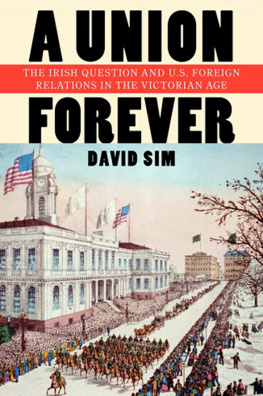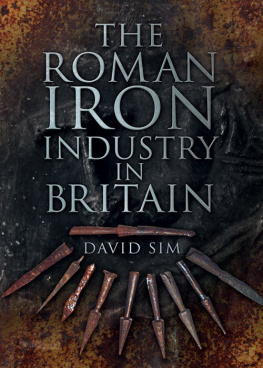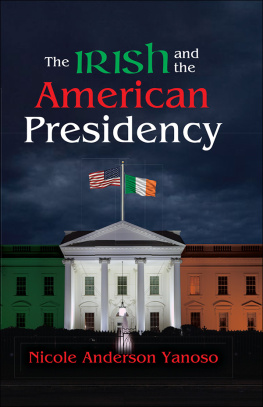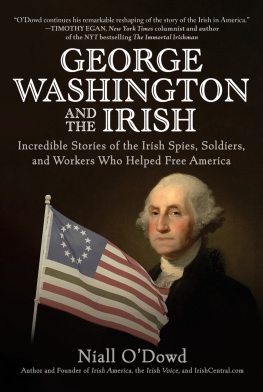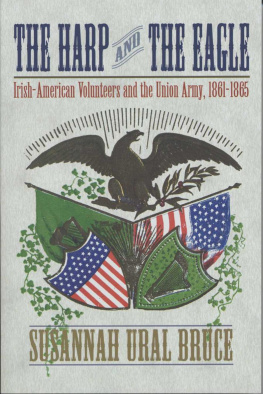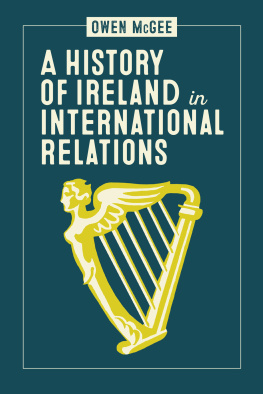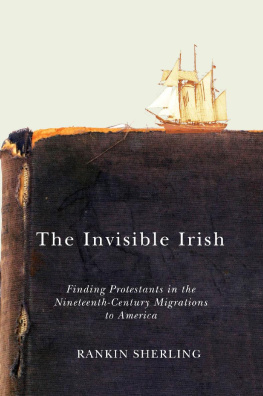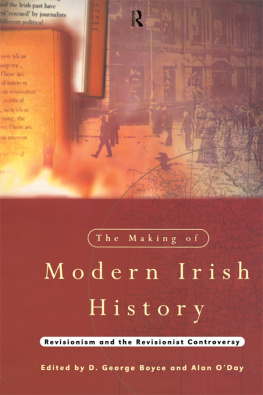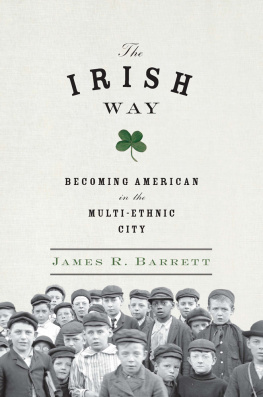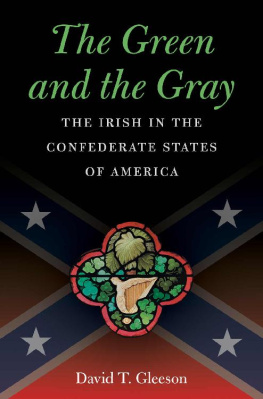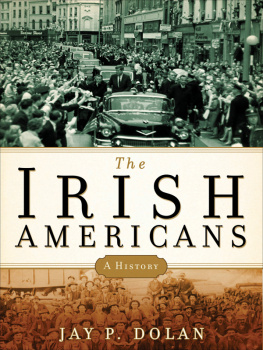A volume in the series
The United States in the World
edited by Mark Philip Bradley, David C. Engerman, and Paul A. Kramer
A list of titles in this series is available at www.cornellpress.cornell.edu .
A UNION FOREVER
The Irish Question and U.S. Foreign
Relations in the Victorian Age
David Sim
Cornell University Press
Ithaca and London
What to that redoubted harpooner, John Bull, is poor Ireland, but a Fast-Fish? What to that apostolic lancer, Brother Jonathan, is Texas but a Fast-Fish? And concerning all these, is not Possession the whole of the law?
Herman Melville, Moby Dick (1851)
Contents
Acknowledgments
This book owes much to the patience, generosity, and insight of many people. In particular, Id like to thank Jay Sexton for his assistance and sagacity throughout the projects progress. Despite inflicting much impenetrable prose and numerous bewildering arguments on him over the years, he agreed to act as my supervisor and has been unfailingly supportive. Special thanks also go to Donald Ratcliffe, Gareth Davies, Stephen Tuck, Martin Crawford, Adam Smith, David Gleeson, Eric Rauchway, Kevin Kenny, Peter Onuf, Lizabeth Cohen, and Richard Carwardine for innumerable conversations, book recommendations, and scholarly advice. Ian Tyrrell, Frank Brinkley, Daniel Peart, and Steve Tuffnell all read drafts of sections of the manuscript (the more masochistic read a whole draft), and I thank them for their suggestions. Id also like to thank Michael McGandy, Sarah Grossman, David Engerman, Kate Babbitt, and the anonymous readers at Cornell University Press for their help. Their comments improved the book immeasurably.
Ive also benefited from feedback and questions received at various seminars and conferences, particularly those held by the Rothermere American Institute, the Institute of Historical Research, the Society for Historians of the Early American Republic, and, of course, the Association of British American Nineteenth Century Historians, which unfailingly puts on the best conference of the year.
Gratitude is also due to Nigel Bowles, Jane Rawson, Judy Warden, and all at the Rothermere American Institute for their support and assistance over the years. The conviviality and friendship of Seb Page, Ed Adkins, Huw David, Jon Sudbury, Mandy Izadi, and the rest of the Institutes group of graduate students did much to mitigate the isolation that can characterize graduate study. Seb, in particular, has had to put up with me for years. He was there when I started out on this project, and he provided valuable material at its end. I believe I owe him a drink or two.
Parts of originally appeared as Filibusters, Fenians, and a Contested Neutrality: The Irish Question and U.S. Diplomacy, 18481871, published in American Nineteenth Century History in December 2011. My thanks to Bruce Baker for permission to reproduce that material.
For their financial assistance, I thank Corpus Christi College, Oxford; the Association of British American Nineteenth Century Historians Peter J. Parish Memorial Fund; and the Gilder Lehrman Institute of American History. In addition, the Rothermere American Institute provided invaluable funds in the form of a one-year doctoral fellowship. A teaching post at Pembroke College gave me the time and space to complete my research, and special mention should go to Adrian Gregory, Gemma Allen, Mike Finch, and Peter Claus for making what could have been a hard slog a real pleasure. Phill, Jonny, Frank, Nils, and Juliet provided friendship, perspective, new records, coffee, and books that werent about history. Crucially, none of these involved being in the archives. I can hardly thank them enough. Special thanks also to John Duddy, Juliet Grames, Anna Sproul, and Katie and Mike Marino for putting me up during my research trips.
I thank John, Ann, and Katherine Duddy for their generosity and support, and, of course, I thank my wife, Claire. Not only did she make valuable suggestions after reading the manuscript from start to finish, but her love, patience, and encouragement have been unstinting. Id imagine that she now knows far more about nineteenth-century American diplomacy than she ever wanted to, for which I can only apologize. Finally, Id like to express my gratitude to my grandmother, Mair, and to my parents, Janice and Ian. Their continuing love and support have underwritten everything Ive done.
Introduction
An Atlantic Triangle
In the autumn of 1851, shiploads of Irish migrants disembarked on New Yorks quays with every tide, attracting the curiosityand sometimes the antipathyof the citys citizens. As the gravity of the Irish famine became apparent to U.S. audiences in late 1846, a slew of articles, lectures, and publications sought to diagnose Irelands ills and explain the avalanche of displaced people arriving in the United States. One of the citys newest journals, the New-York Daily Times , reprinted an article from a Washington, D.C., newspaper that noted that
among the subjects which momentarily rise to excite the interest of mankind, perhaps there is not one other combining so much to awaken or exercise reflection as the great Western Island of Europe. With all its claims to attention, there are few parts of Europeless known than Ireland, in proportion to its intrinsic importance and relative position.
The Times article had been prompted by a visit to Ireland made by the U.S. minister to London, Abbott Lawrence. As a Whig from Massachusetts who was keen to promote transatlantic trade, Lawrence reflected the newspapers conviction that giving efficacy to the natural resources yet dormant in Ireland would be important to the commerce and politics of the United States. Some Americans were clearly most sympathetic to the aspirations of Irish separatists.
This book investigates the implications of this sympathy and asks how Irish and Irish American nationalists attempted to make use of it to recast the United States relationship with Great Britain. No sovereign Irish nation emerged as a consequence of their efforts. In fact, Irish American agency had the paradoxical effect of breeding closer Anglo-American relations over the long term. Nonetheless, the manner and consequences of their failures are worthy of scrutiny. First, they illustrate the openness of U.S. foreign policy to the influence of nonstate actors, particularly in the middle decades of the nineteenth century, when Anglo-American tensions made collusion with Irish nationalism an attractive proposition. Second, the changing place of Irish nationalism in U.S. political and diplomatic thought highlights a fundamental ambivalence about the prospect of other peoples emulating the U.S. model of republican revolution. Americans in the nineteenth century often talked confidently (if blandly) about the international spread of republican virtue, but in practice such views were heavily qualified by religion and ethnicity. Finally, this book details the process by which British and American statesmen built stronger transatlantic ties through the marginalization of revolutionary Irish nationalism. By 1890, when this study concludes, the dream of annexing American power to Irish goals seemed fanciful. The final achievement of an independent Irish state in the 1920s owed little to any innate American sympathy with Irish republicanism and rather more to the immediate context of the world made (or unmade) by the Great War.
Though we have a number of exceptional studies of Irish America, we have few that seriously historicize Irish nationalism and its complex connections with the American Union over the long nineteenth century. This is surprising. Contemporaries appreciated that neither the American Union nor the Anglo-Irish union were stable entities whose futures could be taken for granted, and they thought about both deeply, often in connection with one other. This book captures this uncertainty by offering a synthesis of a transnational, bottom-up approach to Irish American nationalism with attention to the words, intentions, and actions of elite statesmen. This uncertainty has to be central to our understanding of Irish nationalism and U.S. diplomacy and to our study of the nineteenth-century United States more generally.

